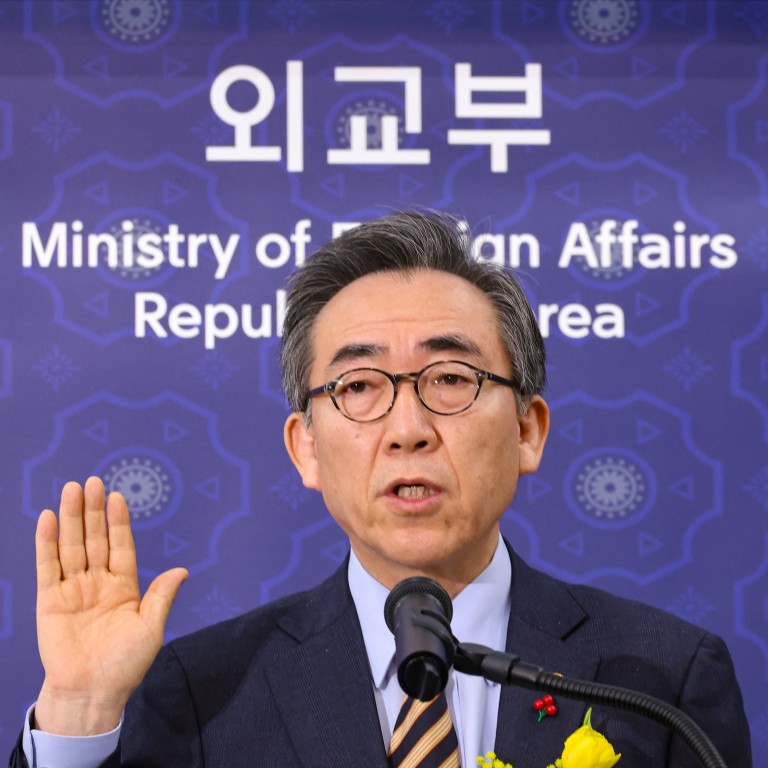
China ‘willing to keep in touch’ with South Korea on first phone call between top diplomats Wang Yi, Cho Tae-yul
- Introductory phone call with China’s Wang Yi yet to take place nearly three weeks after Cho Tae-yul became South Korean foreign minister
- Delay seen as unusual despite lack of set time frame, as bilateral ties remain fraught over Seoul’s US alignment, Taiwan stance and North Korea
“After Foreign Minister Cho Tae-yul took office, Foreign Minister Wang Yi sent him a congratulatory message,” the Chinese foreign ministry said upon being asked when a phone call might take place.
“China is willing to keep in touch with the ROK on the plans of future exchanges between the two foreign ministers,” ministry spokesman Wang Wenbin said, using the acronym for South Korea’s official name – the Republic of Korea.

Cho, a former UN ambassador, was sworn in as South Korean foreign minister on January 12, and has already held phone calls with his US, Japanese and Australian counterparts.
Earlier this week, South Korean news agency News 1 cited a diplomatic source in a report that said Seoul was looking to schedule a Cho-Wang call at a mutually convenient time.
The delayed call with China is seen as somewhat unusual, even though there is no strict time frame for when such first exchanges with foreign counterparts must take place. Cho’s predecessor, Park Jin, had a video call with Wang days after he assumed office in May 2022.
Shortly after he was named as the incoming foreign minister in December, Cho said his priority would be to strengthen ties with China, asserting that Seoul’s relations with Beijing were “no less important” than its alliance with Washington.
China and South Korea should ‘meet each other halfway’: Xi Jinping
However, bilateral relations have been strained in recent months, as South Korea leans closer to the United States under President Yoon Suk-yeol, and his controversial remarks about Taiwan, which Beijing sees as part of China to be reunited by force if necessary.
Most countries, including South Korea, do not recognise the self-governed island as an independent state.
Yoon compared Taiwan with North Korea as a “global issue” in April, prompting an angry Beijing to summon the South Korean ambassador.
The nuclear ambitions of North Korea, a close partner of Beijing, are another source of friction with Seoul.
Trump may make North Korea deal, embolden China, if he wins election: Bolton
South Korea has also stepped up military drills with treaty ally the US and neighbouring Japan to counter North Korea’s nuclear threats. Such moves are often criticised by Beijing as “bloc-confrontations” that destabilise the region.
Yoon and Chinese President Xi Jinping exchanged brief greetings during the Asia-Pacific Economic Cooperation (Apec) summit in San Francisco in November, but did not hold separate bilateral talks.

 - Kawala Xie.jpg?itok=NogZcyZ-&v=1661304068)